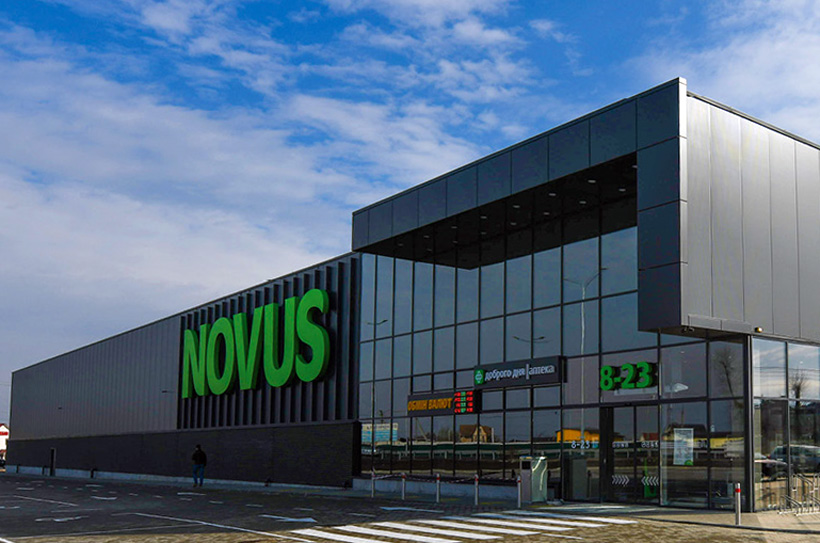Ukraine is in dire need of foreign investments. As global experience has illustrated, foreign investments serve as a guarantor of stable economic development. Apostrophe, in turn, has explored the most significant cases of foreign investors in Ukraine.
Lately, Ukraine has not been able to show off a wide array of foreign investments. The country went down from receiving from 5 to 10 million USD per year in the 2000s to being quite satisfied with 3 million USD on a good year.
The war, the loss of territory, as well as the difficult economic situation (largely attributed to the armed conflict) and the COVID-19 pandemic have all negatively affected the influx of foreign investments. Additionally, the current investment climate is not contributing to potential financial victories.
Investors May Be Different
However, Ukraine does receive foreign investments and hence has foreign investors. Who are they?
The country has three main groups of investors. The first one constitutes transnational corporations, which are operating nearly in every country of the world – including those with a bad investment
The second group involves “investors” from Cyprus that truly belong to Ukrainian financial-industrial groups. These, in turn, are practically returning the funds they laundered in Ukraine back to their homeland, at the same time avoiding some international law norms that act in Cyprus yet not in Ukraine.
The third group, in turn, includes less than transparent companies that don’t mind trying to fish in Ukraine’s muddy waters.
Surely, there are exceptions to these three categories.
However, many companies – including those with a quite remarkable international reputation – do not succeed in cooperating with the Ukrainian side.
For instance, one may recall the time when a low-cost Irish airline, Ryanair, was exploring the Ukrainian market. Despite receiving all necessary permits and certification from the Ukrainian government, the company still couldn’t start operating flights in 2017, having to wait another year.
Another saga concerned Swedish IKEA, which has wanted to enter the Ukrainian market since as early as 2005. IKEA only managed to open an online shop in 2020, with the physical score being tentatively expected before the end of the year. However, an akin development could be hardly considered a success story – first and foremost, for Ukraine.
 IKEA
IKEA
The situation with British American Tobacco, which transpired in 2019 and resulted in the company threatening to move its regional headquarters to Romania, proved rather unpleasant as well. For some time, the company had even paused its production at a Chernihiv Oblast plant.
Rare Success Stories
At the same time, Ukraine has some relatively successful investment projects, too.
For example, about a dozen companies with mainly foreign capital produce car components in Ukraine, which are then sold in international markets.
Like many others, these companies entered Ukraine during the 2000s investment boom, with investors sighting the Ukrainian market in the 90s. As years passed by, they have remained in Ukraine.
The first example that comes to mind is the Chumak company, which has started producing the first-ever ketchup in Ukraine in the mid-90s. Chumak was established by Swedish entrepreneurs Johan Bodén, Carl Sturén and Tetra Pak’s Hans Rausing.
Even though Chumak has lost its leadership in the ketchup market, the company continues producing various sauces, mayonnaise, oil, pasta, juices and even desserts.

In 2008, the investment company Dragon Capital and East Capital Bering Ukraine Fund bought 70% of Chumak’s shares from Hans Rausing. In 2019, Dragon Capital, in turn, sold its stake to the international agricultural holding Delta Wilmar.
Another success story from the 90s is Sandora juices. The brand is well known to Ukrainians, however, most likely don’t know that the company was established by two Lithuanian businessmen, Raimondas Tumėnas and Igor Bezzub, as well as Sergey Sypko, a Ukrainian from Mykolaiv. Sandora was established in 1995, and it has launched its production by 1996.
By 2006, Sandora juices constituted nearly 50% of the juice market. When a giant like PepsiCo became interested and bought out 100% of Sandora in 2007, it didn’t come as a surprise. The deal amounted to 750 million USD. By that time, Sandora produced 16,5 liters of ready production per second.
However, the Lithuanian businessmen didn’t leave Ukraine, thus becoming stable foreign investors. After they sold Sandora, the entrepreneurs founded BT Invest, a firm focused on retail and development. Their most prominent Ukrainian project is a chain of supermarkets called Novus. While Igor Bizzub, unfortunately, is no longer alive, Raimondas Tumėnas continues the duo’s work with Bezzub’s family. Starting from 2008, their overall investments in Ukraine constituted around 500 million USD.
In 2019, the turnover of the Novus chain amounted to 11.5 billion UAH. The number of the company’s supermarkets is constantly increasing, with today counting 46 all around Ukraine.

In the nearest future, the company plans to establish the first “green” distribution center in Ukraine. The center shall be located in Kyiv, with its territory constituting over forty thousand square meters. To implement the project, the firm attracted the funds of the European Bank for Reconstruction and Development. The total amount of the Bank's investment program is 200 million USD; it has already allocated 100 million USD.
Moreover, Consul Trade House UAB (the only member of Novus Ukraine LLC) has reached the final stage of conducting a deal with Rewe International to buy a 100% stake in Billa Ukraine, which owns a chain of supermarkets called Billa. The deal is going under final approvals at the Ukrainian Anti-Monopoly Committee.
Social Responsibility of the Business
Remarkably, Novus doesn’t raise its prices amid the crisis caused by the COVID-19 pandemic.
Moreover, during the coronavirus-invoked lockdown, Novus has been supplying low-income citizens with free food packages.
Unlike in Ukraine’s Western counterpart, it is not often that one can see an akin social responsibility in Ukraine.



